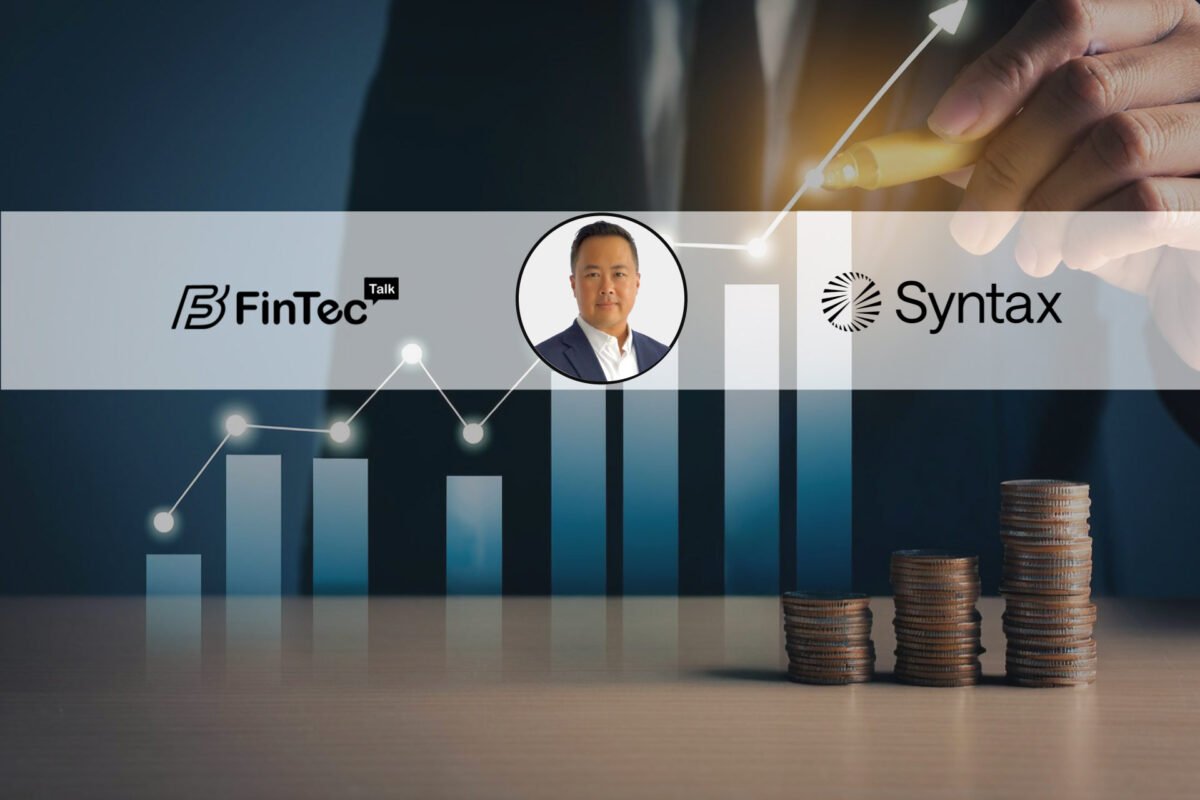Explore the journey of myTU, the cloud-only neobank, from its founding to AI integration.
1. Raman, please let us know what drove the founding of myTU as a neobank with cloud-only infrastructure, and how has the journey evolved since 2019?
The founding of myTU was the result of 25 years of experience in the banking industry. I saw firsthand the pain points and inefficiencies that existed, especially around outdated legacy technology. I envisioned a new type of bank – one built completely in the cloud to enable innovation, efficiency, security and an exceptional user experience.
We started this journey in 2019 with the goal to build everything in-house on Google Cloud. This allowed us to have full control to shape the ideal banking platform and product for customers rather than relying on outdated third-party systems. Over the past four years, we have rapidly evolved from a concept to a fully functioning neobank serving over 26,000 customers globally.
2. How did myTU pivot from travel to family banking during COVID-19, and what prompted recent expansions into business accounts, travel loans, and multi-currency support?
When COVID-19 decimated the travel industry, we made a strategic pivot to family banking and banking for ‘mobile’ clients which broadened our reach. We focused on needs like parent-controlled kids accounts and accounts for freelancers, entrepreneurs and economic migrants. Later on, we launched business accounts to complement family banking. We developed a web app for business clients as well as a marketplace designed to help our business customers expand their market reach across European countries and gain access to our fast-growing customer base. We are evolving rapidly to provide the financial services our diverse clients require.
3. What advantages does myTU gain from building its tech stack in-house with Google Cloud, particularly in terms of operational efficiency and innovation?
Building everything in-house on Google Cloud allows complete customization for our needs. We crafted the ideal architecture from the ground up rather than conforming to external systems. This means unparalleled efficiency – our entire infrastructure costs under €1000/month and our IT team is just five people, yet we can onboard up to 10,000 clients daily and handle 500,000+ clients.
Our agility empowers relentless innovation. We carefully assess opportunities to utilise emerging technologies like AI and machine learning across our processes to augment human capabilities where appropriate. However, we always ensure human oversight and judgement remains critical throughout our operations.
We plan continual improvements like corporate spending cards, expense management and other services that streamline the daily activities of our business clientele. Legacy banks with disjointed legacy tech and neobanks relying on undifferentiated third-party BaaS tech cannot compete.
4. With a small IT team, how does myTU leverage automation, AI, and machine learning to maintain a lean infrastructure while ensuring service quality and security?
Our orchestration of automation, AI and machine learning lets five developers accomplish what takes 500 at a legacy bank. For example, our AI engine summarises and extracts insights from customer data to assist our compliance staff. And we use intelligent process automation across operations like customer onboarding. Bots handle tedious tasks so our team focuses on innovation and enhancement. Security is built into every layer, with encryption and biometrics integrated since day one.
But ultimately we design complementary human and AI systems, not fully autonomous ones, as human judgement remains critical in banking. The key is a holistic approach considering every aspect, like memory and computation needs, rather than disjointed systems. The result is massive scale and quality with minimal human intervention.
5. What risks do you see in a third-party reliant approach in fintech, and how has myTU’s decision to build independently contributed to sustainability and independence?
Relying on external vendors is incredibly risky. You lose control – they might decline certain customers or request intrusive data without warning. And you cannot easily change platforms or systems if issues arise. We saw this firsthand before building independently.
Reliance on external BaaS providers poses significant regulatory risks too. As evidenced by cases like PayrNet, if a BaaS provider faces regulatory action, all associated fintech clients suffer major consequences. A fintech’s operations can be abruptly disrupted if their BaaS vendor’s licence is revoked.
Reliance on BaaS also limits fintechs from easily adapting products for their target customers. The one-size-fits-all offerings of BaaS stifle innovation and customization. And if a BaaS provider goes out of business or has technology issues, dependent fintechs face catastrophic impacts to their platform. The current BaaS model engenders overreliance on external platforms fintechs do not control, severely jeopardising their sustainability.
By owning our entire tech stack, no third party can put operations at risk. We craft optimal processes like seamless onboarding. We can evolve rapidly rather than wait on vendors. This control and independence is essential for sustainability as a truly digital bank.
6. As a pioneer in cloud-based banking, what challenges has myTU faced, and how has the company addressed these challenges to provide a secure and seamless experience?
When pioneering any new technology, challenges arise. We experienced setbacks early on with immature cloud infrastructure from some vendors. However, thanks to our nimble team and flexible architecture, we smoothly transitioned between providers.
Security was a major focus from day one. We integrated extensive encryption, access controls and biometrics ensuring data protection while enabling a convenient sign-in experience meeting modern expectations and regulations. Educating customers that the cloud can be more secure was also key. Overall, our agility to rapidly respond to any technology or adoption challenges is how we ensure an exceptionally secure and seamless customer experience.
7. How do you foresee the evolving role of AI in financial services, and what trends or advancements are expected in the AI space within banking by 2024?
AI is absolutely transforming banking. ChatGPT and other models demonstrate how advanced natural language processing paired with financial data can automate customer service and offer personalised financial advice. Generative AI can also significantly enhance security: identifying fraud, assessing risks, generating synthetic data to preserve privacy.
The intricate decision-making processes of these Large Language Models make them incredibly useful tools. We were quick to recognize their potential. Within a month of the availability of ChatGPT, we had integrated an AI-based feature into our platform. As part of the user’s profile, they are mandated by law to input their occupation. We used AI to extract valuable insights from this data, such as assessing if an individual might be “politically exposed”. Moreover, AI assists in streamlining tasks like reviewing customer records, a process that takes humans about half an hour.
Through AI, we aim to be as lean as possible, with a vision of creating a fully automated digital bank, limiting the number of personnel involved. In 2024, I expect AI assistants at myTU to handle most customer inquiries and take the lead on critical processes like customer onboarding and transaction monitoring.
AI will shift employees towards more value-added roles. And data quality will vastly improve thanks to machine learning, enabling hyper-personalization. Overall, AI adoption in banking will accelerate rapidly in the coming years.
8. How does myTU navigate open banking, and what opportunities and challenges do you foresee for neobanks integrating with open banking ecosystems?
Open banking certainly facilitates valuable data sharing when consumers provide consent. However, it brings challenges around costs, protocol diversity, and user experience. With no unified standards, supporting multiple country-specific protocols and implementing various data-sharing APIs have significant development and maintenance costs. And allowing third parties access to customer information, despite strict consent controls, risks privacy violations and remains a legitimate concern.
Most concerning is the suboptimal experience for customers in practice. Between consent flows, poor data quality, and delays in moving information across multiple platforms, open banking’s promise of seamless data sharing is far from realised. Our approach is to use internal automation rather than rely wholly on external data pipelines. We tap open banking capabilities selectively where the access and experience make sense for customers versus trying to integrate every possible API. Adoption needs to consider costs, security, experience – not just access.
9. With a diverse customer base, how does myTU ensure a personalized and inclusive experience? What strategies are in place to meet the unique financial needs of customers from different backgrounds?
Inclusivity is an important aspect of our mission to make financial services accessible for all. Our account opening only requires basic details, not piles of paperwork that exclude segments of society. Our AI-based monitoring tracks activity, avoiding biases. We offer interfaces in 16 languages and target smaller countries, often overlooked by major players.
Moreover, we’re committed to applying inclusive risk assessment strategies. This involves leveraging alternative data sources and acknowledging diverse income streams, including gig economy work and non-traditional employment. Even community factors are taken into consideration. Our models are regularly reviewed and updated to ensure they remain inclusive and reflective of the ever-changing financial landscape.
In the future, we will strive to empower every customer with customised experiences that meet their unique needs through analysing behaviour and transactions. This will enable tailored financial advice like savings goals or loan offerings to match our customers’ interests, whether that is travel, education or entrepreneurship.
10. Reflecting on myTU’s journey, what key lessons have you learned, and what advice would you offer to other neobanks or fintech startups?
Our journey has demonstrated the immense power of innovating from the ground up, without legacy constraints or being tied to what BaaS platforms make possible. By building our own nimble technology stack on the cloud, we can shape ideal financial products continually optimised to customers’ needs rather than those of outdated systems.
My advice to fintech founders is to start with the end consumer experience and work backwards in designing systems. Maintain relentlessness, focusing on efficiency rather than flashy features. Embrace emerging technology like AI with strategy rather than hype. Stay nimble, value your talented team, and put security first. If you build purposefully in this manner, you can transform people’s financial lives.
Stay Ahead of the Financial Curve with Our Latest Fintech News Updates!




